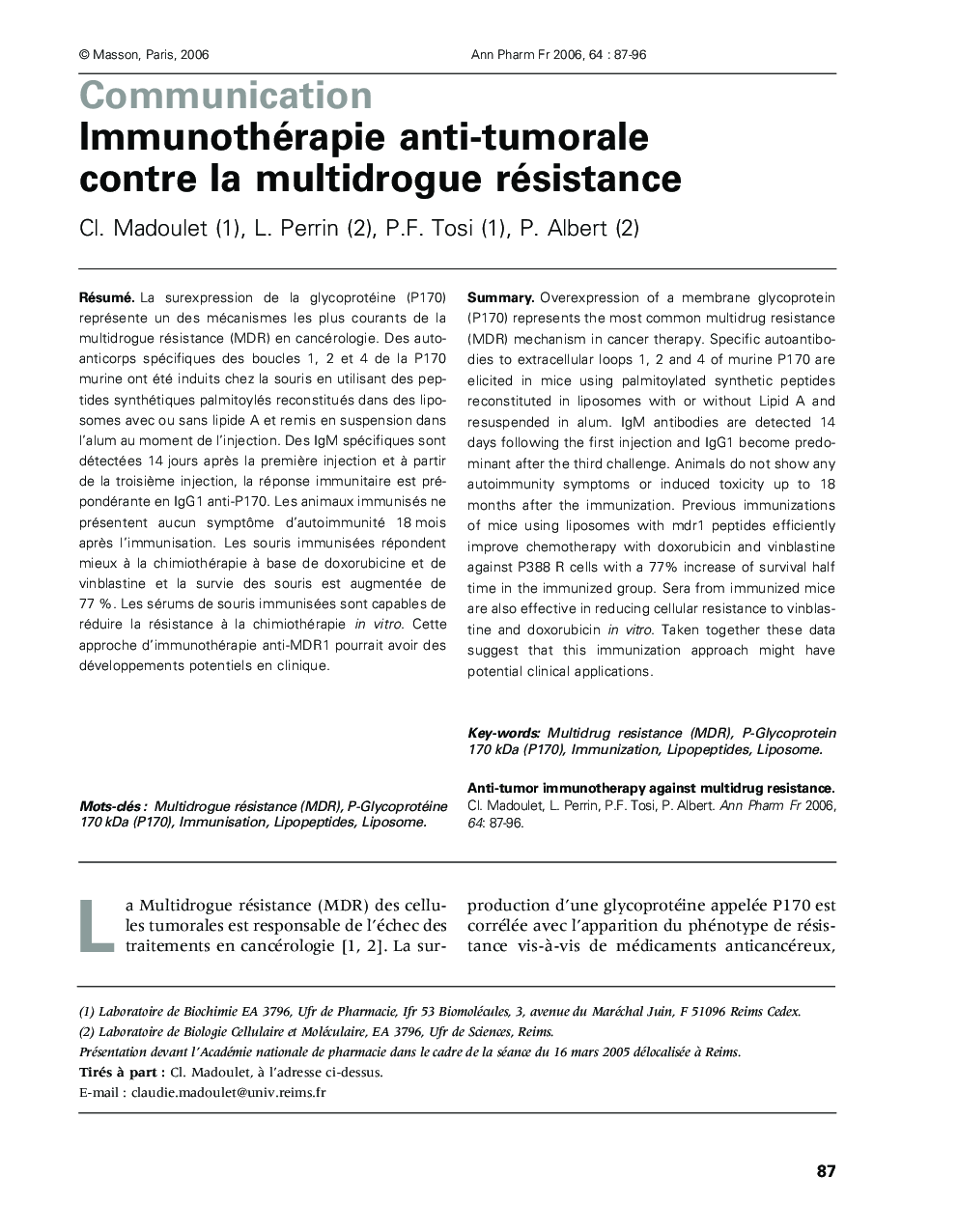| Article ID | Journal | Published Year | Pages | File Type |
|---|---|---|---|---|
| 2478581 | Annales Pharmaceutiques Françaises | 2006 | 10 Pages |
Abstract
Overexpression of a membrane glycoprotein (P170) represents the most common multidrug resistance (MDR) mechanism in cancer therapy. Specific autoantibodies to extracellular loops 1, 2 and 4 of murine P170 are elicited in mice using palmitoylated synthetic peptides reconstituted in liposomes with or without Lipid A and resuspended in alum. IgM antibodies are detected 14 days following the first injection and IgG1 become predominant after the third challenge. Animals do not show any autoimmunity symptoms or induced toxicity up to 18 months after the immunization. Previous immunizations of mice using liposomes with mdr1 peptides efficiently improve chemotherapy with doxorubicin and vinblastine against P388 R cells with a 77% increase of survival half time in the immunized group. Sera from immunized mice are also effective in reducing cellular resistance to vinblastine and doxorubicin in vitro. Taken together these data suggest that this immunization approach might have potential clinical applications.
Related Topics
Health Sciences
Pharmacology, Toxicology and Pharmaceutical Science
Drug Discovery
Authors
Cl. Madoulet, L. Perrin, P.F. Tosi, P. Albert,
